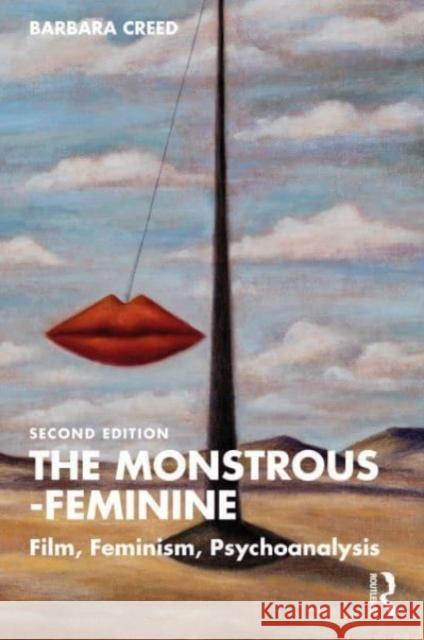The Monstrous-Feminine: Film, Feminism, Psychoanalysis » książka
The Monstrous-Feminine: Film, Feminism, Psychoanalysis
ISBN-13: 9780367209452 / Angielski
The Monstrous-Feminine: Film, Feminism, Psychoanalysis
ISBN-13: 9780367209452 / Angielski
(netto: 195,06 VAT: 5%)
Najniższa cena z 30 dni: 186,33
ok. 16-18 dni roboczych.
Darmowa dostawa!
This updated edition of The Monstrous Feminine includes an entirely new section examining feminist horror films of the new millennium in the context of abjection and nonhuman theory.
This is a timely update of a seminal text which re-interprets key films of the horror genre, including Carrie, The Exorcist, The Brood and Psycho. Although a projection of male fears and fantasies, the monstrous-feminine is a nonetheless a terrifying figure.
In the first edition, Creed draws on Julia Kristeva’s theory of abjection, to challenge the popular view that women in horror are almost aways victims by arguing that the prototype of all definitions of the monstrous is the female sexual and reproductive body. She holds that patriarchal ideology constructs woman as monstrous in relation to her sexuality and reproductive body to justify her subjugation. Although a projection of male fears and parsanoid fantasies, the monstrous-feminine is nonetheless a terrifying figure who assumes at least seven faces: archaic mother, monstrous womb, vampire, possessed monster, witch, devouring mother and castrator. Creed’s argument contests Freudian and Lacanian theories of sexual difference to offer a provocative rereading of classical and contemporary horror.
This updated edition includes an entirely new section examining contemporary feminist horror films in relation to nonhuman theory. Creed proposes a new concept of radical abjection to reinterpret the monstrous-feminine as a figure who embraces her abjection by reclaiming her body and re-defining her otherness as nonhuman––while questioning patriarchy, anthropocentrism, misogyny, and the meaning of the human. This edition proposes further faces of the monstrous-feminine: creatrix, woman-wolf, machine, mermaid, chimera, zombie, and troll. Films discussed include Ginger Snaps, Teeth, Atlantics, Little Joe, The Girl with All the Gifts, Border and Titane.
Barbara Creed’s classic remains as relevant as ever and this edition will be of interest to academics and students of feminist theory, nonhuman theory, critical animal studies, race, and queer theory.











